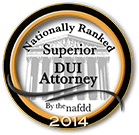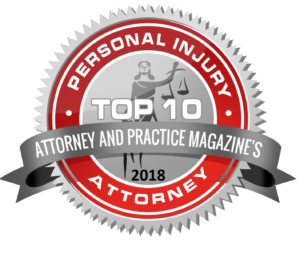Bicycle accidents can be disorienting and traumatic events, often leaving individuals unsure of what actions to take in the aftermath. Knowing the appropriate steps to follow immediately after a bicycle accident can significantly impact the outcome of any subsequent legal or insurance claims. Ensuring safety, documenting the incident, and seeking medical and legal assistance are crucial components in navigating the challenging period that follows an accident.

Ensuring Safety and Immediate Health Assessment
The first and foremost priority after a bicycle accident is to ensure personal safety and assess any injuries. If you find yourself on the ground after a collision, take a moment to evaluate your physical condition. It is essential to move to a safe location away from traffic if possible, but avoid moving if you suspect any serious injuries such as fractures or head trauma. In such cases, it is crucial to wait for emergency responders to arrive.
Calling emergency services is a critical step, even if the injuries seem minor at first. Many injuries, especially internal ones, might not be immediately apparent. Emergency medical personnel can provide an initial assessment and transport you to a hospital if necessary. Adrenaline and shock can mask pain and symptoms, so it is always better to err on the side of caution and seek medical attention promptly.
Reporting the Accident to Authorities
Once your immediate safety and health have been addressed, the next step is to report the accident to the authorities. Contacting the police is vital, regardless of the accident’s perceived severity. The police will arrive at the scene to document the incident, gather statements from involved parties, and create an official accident report. This report will be an essential piece of evidence for any future legal or insurance claims.
When speaking with the police, provide a clear and accurate account of the events leading up to the accident. Avoid speculating or admitting fault, as this can complicate any subsequent investigations or claims. If possible, obtain the names and badge numbers of the officers on the scene, as well as a copy of the police report or information on how to acquire it later.
Gathering Information and Evidence
Collecting detailed information and evidence at the accident scene is crucial for building a strong case in the aftermath of a bicycle accident. If you are physically able, start by exchanging contact and insurance information with the other party involved in the accident. This includes obtaining their name, phone number, address, driver’s license number, and insurance details. Additionally, note the make, model, and license plate number of any vehicles involved.
Photographic evidence can be invaluable in supporting your version of events. Use your phone or camera to take pictures of the accident scene from multiple angles, capturing the positions of vehicles, road conditions, traffic signs, and any visible injuries or damages to your bicycle. Also, document any skid marks, debris, or other relevant details that might help reconstruct the accident later.
If there are any witnesses to the accident, try to obtain their contact information and ask for a brief statement of what they observed. Witness testimonies can provide an unbiased perspective and bolster your case if there are disputes about the facts of the accident.
Seeking Medical Attention
Even if you do not require emergency medical transport, it is essential to seek medical attention as soon as possible after a bicycle accident. Schedule an appointment with your primary care physician or visit an urgent care center for a comprehensive evaluation. Some injuries, such as concussions, whiplash, or internal bleeding, might not present immediate symptoms but can have serious long-term effects if left untreated.
Medical documentation is a critical component of any personal injury claim. Ensure that all your injuries are thoroughly documented, including any prescribed treatments, medications, and follow-up appointments. Keep copies of all medical records, bills, and receipts, as these will be necessary for calculating damages in your claim.
Contacting a Legal Professional
Navigating the legal complexities that follow a bicycle accident can be daunting, especially when dealing with injuries and recovery. Contacting a legal professional with experience in personal injury and bicycle accident cases can provide invaluable assistance during this challenging time. A lawyer can help you understand your rights, evaluate the strength of your case, and guide you through the process of filing a claim.
Your lawyer will work with you to gather and organize all necessary documentation, communicate with insurance companies, and negotiate on your behalf. Having legal representation ensures that your interests are protected and increases the likelihood of receiving fair compensation for your injuries, damages, and any associated costs.
Dealing with Insurance Companies
Communicating with insurance companies is a critical aspect of the post-accident process. It is important to notify your insurance company about the accident as soon as possible, even if you believe the other party is at fault. Provide them with all necessary information, including the police report, witness statements, and any evidence you have gathered.
Insurance companies often seek to minimize their payouts, so it is essential to be cautious when dealing with them. Avoid making any statements that could be construed as admitting fault or downplaying your injuries. It is advisable to let your lawyer handle communications with the insurance companies to ensure that your rights are fully protected.
Choosing a Personal Injury Attorney Personal Injury Case TimelineRelated Videos
Documenting Your Recovery
Keeping a detailed record of your recovery process is vital for substantiating your claim. Maintain a journal that includes daily entries about your physical condition, pain levels, and the impact of your injuries on your daily life. Note any missed workdays, changes in your ability to perform routine activities, and the emotional and psychological effects of the accident.
Photographs of your injuries over time can provide visual evidence of your recovery progress and any lasting scars or disabilities. These records will help demonstrate the full extent of your injuries and support your claim for compensation.
Understanding the Legal Process
The legal process following a bicycle accident can be complex and lengthy. It typically involves filing a claim, negotiating with insurance companies, and potentially pursuing a lawsuit if a fair settlement cannot be reached. Your lawyer will guide you through each step, ensuring that you meet all necessary deadlines and requirements.
Filing a personal injury claim involves submitting detailed documentation of the accident, your injuries, and any associated costs. Your lawyer will work with you to compile a comprehensive claim package that includes medical records, bills, repair estimates, and any other relevant evidence.
Negotiating with insurance companies can be a prolonged process, as they may attempt to offer low settlements initially. Your lawyer will advocate on your behalf, aiming to secure a fair settlement that adequately compensates you for your injuries and damages.
If a settlement cannot be reached, your lawyer may recommend filing a lawsuit and taking the case to court. This involves a more formal legal process, including discovery, depositions, and potentially a trial. While this can be time-consuming and stressful, it may be necessary to achieve a just outcome.
Focusing on Recovery and Support
While dealing with the legal and insurance aspects of a bicycle accident, it is essential to focus on your physical and emotional recovery. Follow your healthcare provider’s recommendations, attend all medical appointments, and adhere to any prescribed treatments or therapies. Taking care of your physical health is paramount to your overall recovery.
Emotional and psychological support is also crucial. Consider seeking counseling or joining a support group for accident victims to help cope with the trauma and stress associated with the accident. Lean on friends and family for support and do not hesitate to ask for help when needed.
Long-Term Considerations and Prevention
Once you have navigated the immediate aftermath of a bicycle accident, it is important to consider long-term implications and preventive measures. Reflect on the circumstances that led to the accident and assess whether any changes can be made to reduce the risk of future incidents. This might involve investing in better safety gear, choosing safer routes, or advocating for improved cycling infrastructure in your community.
Your Bicycle Accident Advocacy Team
Understanding your rights and responsibilities as a cyclist is essential for preventing future accidents. Familiarize yourself with local traffic laws and regulations, and always practice defensive cycling techniques. Wearing appropriate safety gear, such as helmets and reflective clothing, can significantly reduce the risk of injury.
If you or a loved one has been involved in a bicycle accident, seeking legal assistance is a crucial step in protecting your rights and securing the compensation you deserve. NovaLegalGroup, P.C. is committed to providing compassionate and effective legal representation for bicycle accident victims. Our experienced team understands the complexities of personal injury cases and will work tirelessly to achieve a favorable outcome for you.
Contact NovaLegalGroup, P.C. today for a free consultation to discuss your case and explore your legal options. Let us help you navigate the legal process so you can focus on your recovery and move forward with confidence. Your well-being is our priority, and we are here to support you every step of the way.










